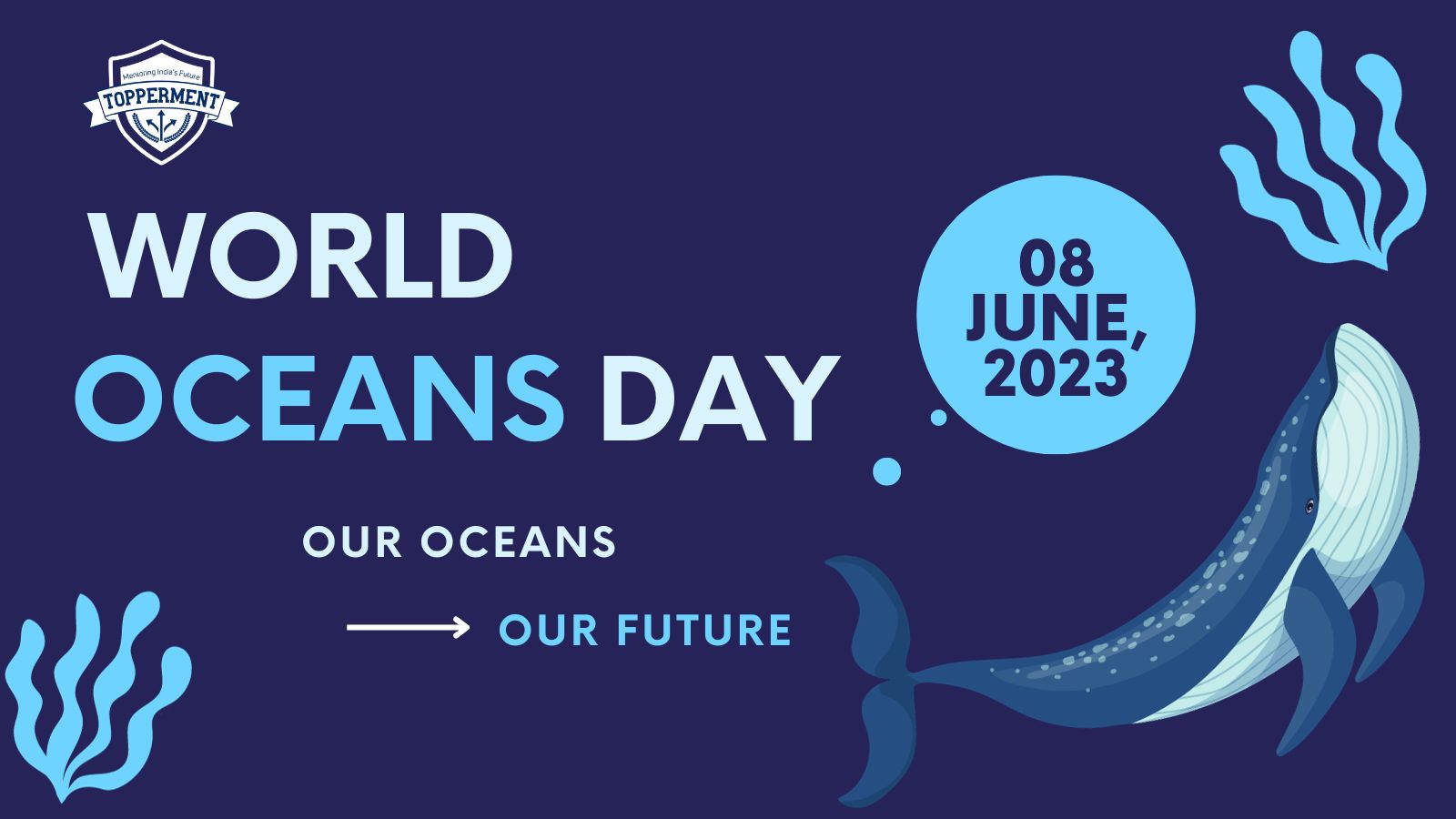
World Oceans Day: Protecting Our Blue Planet | TM Special
World Oceans Day is celebrated globally on June 8th each year to raise awareness about the importance of the oceans and the need to protect them. This day serves as a reminder of the critical role that oceans play in sustaining life on Earth and providing a range of benefits for humanity.
Significance of Oceans
Oceans cover about 71% of the Earth’s surface and contain 97% of the planet’s water. They are essential for maintaining the global hydrological cycle, which influences precipitation, weather patterns, and climate. They regulate climate by absorbing heat from the sun and distributing it around the world through ocean currents. They also absorb carbon dioxide from the atmosphere, reducing greenhouse gas emissions and mitigating global warming.
Oceans produce a significant amount of oxygen we breathe, as marine plants and algae perform photosynthesis and release oxygen into the air. They also provide a habitat for countless marine species, supporting a rich biodiversity that contributes to the functioning of ecosystems and the provision of ecosystem services.
Oceans are a source of food, livelihoods, recreation, and cultural values for millions of people around the world. They also offer opportunities for scientific exploration, discovery, and innovation.
Climate Change and Ocean Acidification
However, oceans are facing multiple threats from human activities that jeopardize their health and resilience. One of the major challenges is climate change, which affects oceans in various ways. Rising sea levels, caused by melting ice caps and thermal expansion of seawater, pose threats to coastal communities and infrastructure.
Extreme weather events, such as storms, hurricanes, floods, and droughts, become more frequent and intense due to climate change, causing damage and disruption to human lives and ecosystems. Changes in ocean temperature, salinity, and circulation affect marine life and their habitats, altering their distribution, migration, reproduction, and survival.
Another consequence of climate change is ocean acidification, which occurs when oceans absorb excess carbon dioxide from the atmosphere and become more acidic. Ocean acidification harms coral reefs and marine organisms that build shells or skeletons from calcium carbonate, such as mollusks, crustaceans, and corals.
These organisms are vital for maintaining the structure and diversity of marine ecosystems, as well as providing food and income for many people. Ocean acidification also affects the growth, development, behavior, and physiology of other marine species, reducing their ability to cope with environmental changes.
Pollution and Plastic Waste
Another threat to oceans is pollution, which refers to the discharge of pollutants into the marine environment from various sources, such as land-based activities, shipping, offshore oil and gas exploration and production, mining, aquaculture, and tourism. Pollution degrades marine ecosystems and affects the quality of water and resources that humans depend on. Some of the common pollutants include plastics, chemicals, nutrients, metals, oil spills, sewage, radioactive substances, noise, and invasive species.
Among these pollutants, plastics are one of the most pervasive and persistent ones that accumulate in the oceans. Plastics are synthetic materials that are widely used for various purposes due to their durability, versatility, and low cost.
However, they also pose serious problems for the environment when they are not properly disposed of or recycled. Plastics can break down into smaller pieces called microplastics or nanoplastics over time due to sunlight exposure or physical abrasion. These plastic fragments can be ingested by marine animals or accumulate in their tissues or organs, causing harm to their health and well-being.
Plastics can also entangle or suffocate marine animals or damage their habitats. Plastics can also carry toxic substances or pathogens that can contaminate water or food chains.
Overfishing
Another challenge facing oceans is overfishing, which refers to the extraction of fish or other marine resources beyond their sustainable levels or capacity to replenish. Overfishing disrupts marine food chains and depletes fish populations, reducing their genetic diversity and resilience to environmental changes. Overfishing also affects the livelihoods and food security of millions of people who rely on fishing as a source of income or nutrition.
Overfishing is driven by various factors, such as increasing demand for fish products, lack of effective management and regulation, illegal, unreported, and unregulated fishing practices, destructive fishing methods, such as bottom trawling or dynamite fishing, and subsidies that encourage overcapacity or overexploitation.
Role Of World Oceans Day
In order to address these issues and protect and conserve the oceans and their resources, World Oceans Day was established by the United Nations General Assembly in 2008 as an annual celebration and a platform to raise awareness about ocean-related issues through educational programs, events, and campaigns.
World Oceans Day encourages individuals, communities, and organizations to take action and make sustainable choices that can reduce their impact on the oceans and contribute to their conservation. The day also serves as an opportunity to advocate for the establishment of marine protected areas and the conservation of vulnerable marine species, such as sharks, turtles, whales, and dolphins.
World Oceans Day also fosters initiatives for reducing plastic waste, promoting sustainable fishing practices, and combating climate change and ocean acidification.
World Oceans Day serves as a crucial reminder that the health of our oceans is interconnected with the well-being of our planet and future generations. It calls for immediate action to protect and conserve these invaluable ecosystems. By raising awareness, promoting sustainable practices, and fostering international cooperation, we can safeguard the oceans and ensure a sustainable future for all.
Also Read



